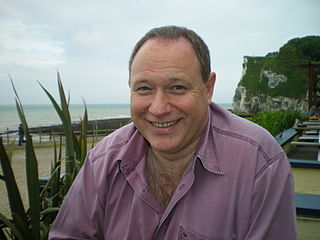A Quote by Kathleen Norris
I wonder if children don't begin to reject both poetry and religion for similar reasons, because the way both are taught takes the life out of them.
Related Quotes
Both Socrates and Jesus were outstanding teachers; both of them urged and practiced great simplicity of life; both were regarded as traitors to the religion of their community; neither of them wrote anything; both of them were executed; and both have become the subject of traditions that are difficult or impossible to harmonize.
Something that I wanted to do through the film is try to explore the roots of belief, because everything has to do with beliefs. When I studied the side of the rationalists and the skeptics, and the side of the believers and so-called psychics, I found out that both of them, no matter what they claim to do, behave in a very similar way. They only accepted what confirmed their previous positions, and tended to reject everything that put them at risk.
I also like to look at the dynamic that takes place between religion and science because, in a way, both are asking the same questions: Who are we? Where do we come from? Why are we here? Where are we going? The methodologies are diametrically opposed, but their motivation is the same; the wellspring is the same in both cases.
Aristotle said that philosophy begins in wonder. I believe it also ends in wonder. The ultimate way in which we relate to the world as something sacred is by renewing our sense of wonder. That's why I'm so opposed to the kind of miracle-mongering we find in both new-age and old-age religion. We're attracted to pseudomiracles only because we've ceased to wonder at the world, at how amazing it is.
When I first heard Bjork's music, I felt like I was a similar-minded thinker, both harmonically and melodically. She takes those things that you naturally assume to be opposite because they're presented that way most of the time, and the way she twines them together is so beautiful. To be able to do that is so powerful.
I think there in a great deal to be said for religious education in the sense of teaching about religion and biblical literacy. Both those things, by the way, I suspect will prepare a child to give up religion. If you are taught comparative religion, you are more likely to realise that there are other religions than the one you have been brought up in. And if you are if you are taught to read the bible, I can think of almost nothing more calculated to turn you off religion.
As children, Siddhartha and Jesus both realized that life is filled with suffering. The Buddha became aware at an early age that suffering is pervasive. Jesus must have had the same kind of insight, because they both made every effort to offer a way out. We, too, must learn to live in ways that reduce the world's suffering.
Both art and science are bent on the understanding of the forces that shape existence, and both call for a dedication to what is. Neither of them can tolerate capricious subjectivity because both are subject to their criteria of truth. Both require precision, order, and discipline because no comprehensible statement can be made without these. Both accept the sensory world as what the Middle Ages called signatura regrum, the signature of things, but in quite different ways.






































